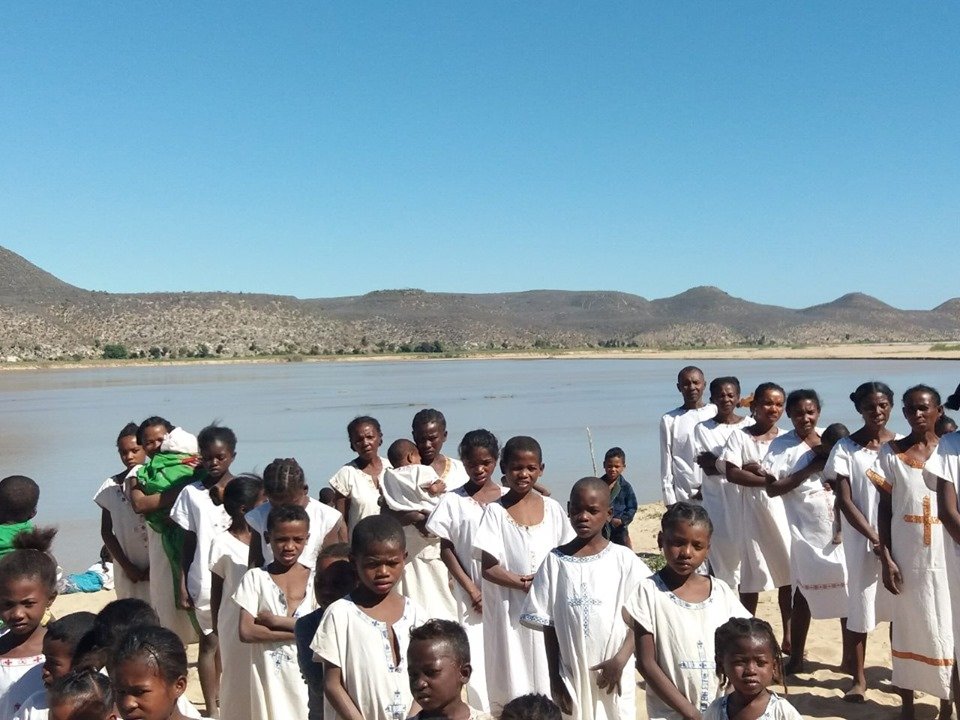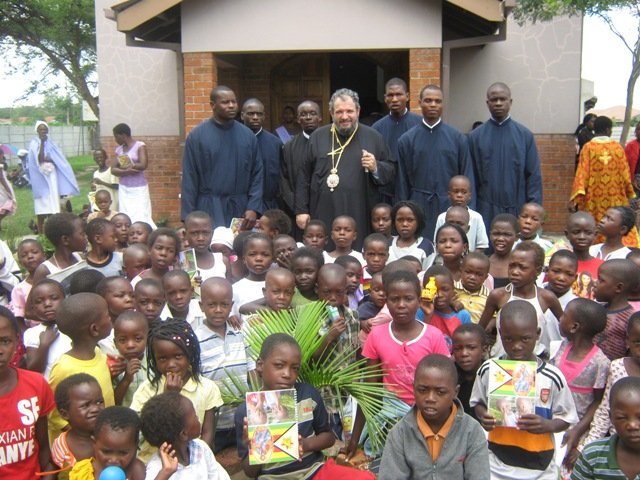The Sunday of Orthodoxy and Mission
20 March 2021The Feast of Orthodoxy was established in the ninth century, on the occasion of the victory of the right faith [In Greek, ‘orthodox’ means ‘correct thinking’, ‘having the right view’], concerning the human and divine person of Jesus Christ and the honor rendered by us to the saints, through the holy icons.
Gradually, however, the feast became more general and acquired particular significance in the sense that it began to constitute a commemoration of the victory of Orthodoxy over every form of misbelief, i. e. heresy, and of the victory of the Church over its various enemies. In order to promote the triumph of Orthodoxy, in the Patriarchate of Alexandria and All Africa the Creed is read with a special supplication. The Creed is the best encapsulation of the basic principles of the content of the teaching of the Christian faith, and the Church underlines this clearly in the text, which was formulated by the holy Fathers who took part in the first two Ecumenical Synods (Nicaea, 325, and Constantinople, 381).

The Feast of Orthodoxy is of great theological importance for the life of Christians, because it’s linked to our salvation. The efforts on the part of the heretics to distort and misrepresent the proper Christian teaching of our Church, as this had been revealed by the Triune God and taught by Jesus Christ, his holy disciples and their successors (the Apostolic Succession), was, in reality, an attempt to block our path to salvation, to keep us away from God and away from our salvation in Christ. So the issue of ‘Orthodoxy’ was really about whether the truth would prevail. The emergence of misbelief was an attempt to impose untruth. We aren’t formed nor are we saved through lies. The darkness which pervades us becomes all the darker. We become callous. We descend into forms of life which are worse than bestial, such as those practiced in Sodom and Gomorrah. This is followed by calamity, pain and misery.
In today’s world of progress and also of anxiety, the role of Orthodoxy continues to be a living hope for a better and more just world. The responsibility and conscientiousness of Christians towards the principles of the Gospel are a basic requisite for a convincing Orthodox witness in the world we inhabit. We’re called upon to be apostles of Christ, after we’ve first learned from him, leaving aside the old, sinful person and making a start in applying the divine commandments of Jesus Christ to our life with purposeful zeal and diligence. It’s only when we take part in the life of Christ that we live in a Christian manner.

The Sunday of Orthodoxy is the feast of those who are the flag-bearers and vanguard in the struggle and in the witness of Orthodoxy in the modern world. In particular, we welcome and gratefully thank those who become vessels of God’s blessing by supporting our missionary service in so many ways: moral support with their prayers and material support through their generous contributions to our missionary efforts. Without their assistance we would not be able to accomplish anything in the vineyard of the Lord. Those who help us are in the front line, as have been all those blessed people who have never ceased to stand with Christ and his disciples as witnesses to the Gospel in the world. On behalf of our Primate in Alexandria, Theodoros II, the clergy and laity, the destitute and the orphans, we send our grateful thanks to all those who assist us in our missionary work. We thank you, and may God grant you all things that are good. God bless your families.
The grace of God exists and works within us when our life approaches that of Christ. By our worthy participation in the sacrament of Holy Communion, the whole world becomes our body. This is the mystical Orthodox dimension of divine grace: to feel and experience the problems of the world as if they were our own. The grace of God is within us not only when we talk about theological matters, but also when we sense an inner improvement within ourselves. Our life is a time of repentance. If we are to be conscious of our limits, of our weaknesses and our imperfection, we need to compare ourselves with the person of Jesus Christ. Whatever happens, without faith in Jesus Christ there’s a risk that we’re committing a sin. To live in a Christian manner means behaving properly, wherever you are. The life of believers is ‘concealed’ in the life of Jesus Christ, when we participate in his life, when we imitate his life and his works. When we love all other people and do the best for them.






